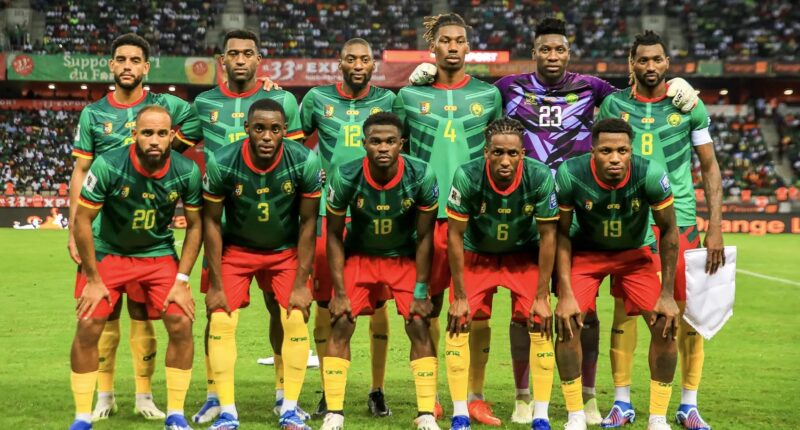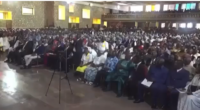The elimination of Cameroon’s Indomitable Lions by the DRC in the 2026 World Cup playoffs shook the entire nation. It was more than a painful sporting moment. It opened a window into the country’s political fatigue. It stirred emotions that went far beyond football. It pushed Cameroonians to speak through irony, jokes, and bitter laughter about the failures they live with every day.
The goal that sent Cameroon out came in stoppage time. It felt like a punch. It felt like a reflection of a nation always losing at the last minute because those in charge refuse to prepare, reform, or lead. The defeat landed at a time when the country was already drowning in hardship, and the people quickly linked the match to the political climate.
Online, the reaction was sharp. Social media transformed the loss into a symbol of the state’s decay. People compared the match to the disputed presidential election. They said the defeat felt like a rigged process. They joked that if votes can be “corrected”, then maybe the Constitutional Council should step in and overturn the football result, awarding Cameroon a fake 1–0 win. It was pure sarcasm, but it carried a deep truth. The public no longer trusts institutions.
This wave of irony was more than humour. It was a safe way for people to express their frustration. They cannot openly question the regime, so they used football to highlight the same fraud, lack of transparency, and decline they see in politics. Football became a mirror. What failed on the field is the same thing failing in governance: incompetence, lack of direction, and the absence of accountability.
Across the country, life is hard. Streets are dirty. Water is scarce. Electricity cuts are endless. Roads are broken. Hygiene is poor. Money is tight. Prices are rising. People feel abandoned. Everything seems to be falling apart. In this kind of environment, even football, the nation’s pride, crumbles under the same weight of mismanagement.
This moment sets the stage for what many Cameroonians fear about Paul Biya’s eighth mandate. They see no sign of renewal. They expect more stagnation. They predict more hardship because nothing in the system has changed. The leadership is older. The institutions are weaker. The promises are empty. The future looks like the past, only worse.
The elimination of the Indomitable Lions feels like a warning. A symbolic collapse that matches the collapse in daily life. It shows a country unable to compete, organise, or reform. It tells the story of a regime at its limit.
For many, the next seven years under Biya will not bring progress. They foresee more broken infrastructure, more power cuts, more insecurity, more unemployment, and more frustration. The football defeat only confirmed it. If the state cannot manage a match, how can it manage a country?
For Ambazonians, this moment only strengthens a long-held conviction. A country led by a system that cannot deliver basic services cannot deliver stability or dignity. A state that struggles with the simplest responsibilities cannot guarantee a future. The World Cup exit was not just a sporting disappointment. It was a national diagnosis.
Cameroon’s defeat was sudden. Biya’s coming failure will be slower, but just as predictable. And the people already see it coming.
By Lucas Muma





